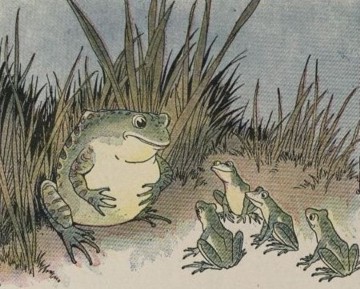PART A_1
Let’s learn vocabulary. Listen and repeat the words and the sentences with your tutor.
PART A_2
| 1. splash | /splash/ |
| -to wet or soil by dashing masses or particles of water, mud, or the like; spatter | |
| The waiter accidentally splashed coffee over her jacket. | |
| 2. crush | /kruhsh/ |
| -to squeeze or pound into small fragments or particles, as ore, stone, etc. | |
| The chef crushed a slice of old bread to make crumbs. | |
| 3. mud | /muhd/ |
| -wet, soft earth or earthy matter, as on the ground after rain, at the bottom of a pond, or along the banks of a river; mire | |
| His boots were obviously soaked in mud. | |
| 4. declare | /dih-KLAIR/ |
| -to make known or state clearly, especially in explicit or formal terms | |
| The clothing company declared bankruptcy after seven years of operation. | |
| 5. burst | /burst/ |
| -to break, break open, or fly apart with sudden violence | |
| After a few seconds, all the bubbles burst. |
PART B_1
Let’s read the story. Please read them aloud, and I will check your pronunciation and intonation.
PART B_2
THE FROGS AND THE OX

An Ox came down to a reedy pool to drink. As he splashed heavily into the water, he crushed a young Frog into the mud. The old Frog soon missed the little one and asked his brothers and sisters what had become of him.
“A great big monster”, said one of them, “stepped on little brother with one of his huge feet!”
“Big, was he!” said the old Frog, puffing herself up. “Was he as big as this?”
“Oh, much bigger!” they cried.
The Frog puffed up still more.
He could not have been bigger than this, she said. But the little Frogs all declared that the monster was much, much bigger and the old Frog kept puffing herself out more and more until, all at once, she burst.
Do not attempt the impossible.
PART C_1
Let’s answer comprehension questions. Please answer them based on the story.
PART C_2
| 1. | What did the Ox do? |
| 2. | How did the Old Frog tell them what happened? |
| 3. | What happened to the Old Frog? |
PART D_1
Let’s discuss the story. Please answer the questions below and express your opinions.
PART D_2
| 1. | Do you think the Ox did it intentionally? |
| 2. | What can you say about the reaction of the other frogs? |
| 3. | Was the Old Frog able to tell the story effectively? |
| 4. | The fable’s lesson is “Do not attempt the impossible.” Do you agree with this? Why or why not? |
| 5. | Do you think it is good to set limits on yourself? |
REVIEW AND FEEDBACK
Now, let us review the things that you learned in this lesson.
ではこのレッスンで学んだことを振り返りましょう。
(Please give a short feedback on how your student did on your class.)
| Grammar 文法 |
Pronunciation 発音 | Vocabulary 単語 |
Comprehension 理解 |
|
|---|---|---|---|---|
 GOOD GOOD |
文法の誤りはほとんどなく、完全な文章で話すことができる | ほとんどの単語をはっきりと正しく発音することができる | 習った表現を適切に使うことができる | 文章を理解し、質問に正しく答えることができる |
 FAIR |
文法の誤りはあるが、完全な文章で話すことができる | 発音の練習が必要な言葉がいくつかある | たまにミスはあるが、習った表現を適切に使うことができる | 文章を完全に理解するのは難しく、質問に正しく答えられないときもある |
 POOR |
文章で話すのは難しく、単語だけで話すことができる | 発音の練習が必要である | 習った単語と表現を少しだけ使うことができる | 文章を理解するのは難しく、質問に答えるのは難しい |
Parts of this lesson material are based on:
An eBook from The Project Gutenberg.
This eBook is for the use of anyone anywhere at no cost and with almost no restrictions whatsoever. You may copy it, give it away or re-use it under the terms of the Project Gutenberg License included with this eBook or online at www.gutenberg.org
An eBook from The Project Gutenberg.
This eBook is for the use of anyone anywhere at no cost and with almost no restrictions whatsoever. You may copy it, give it away or re-use it under the terms of the Project Gutenberg License included with this eBook or online at www.gutenberg.org